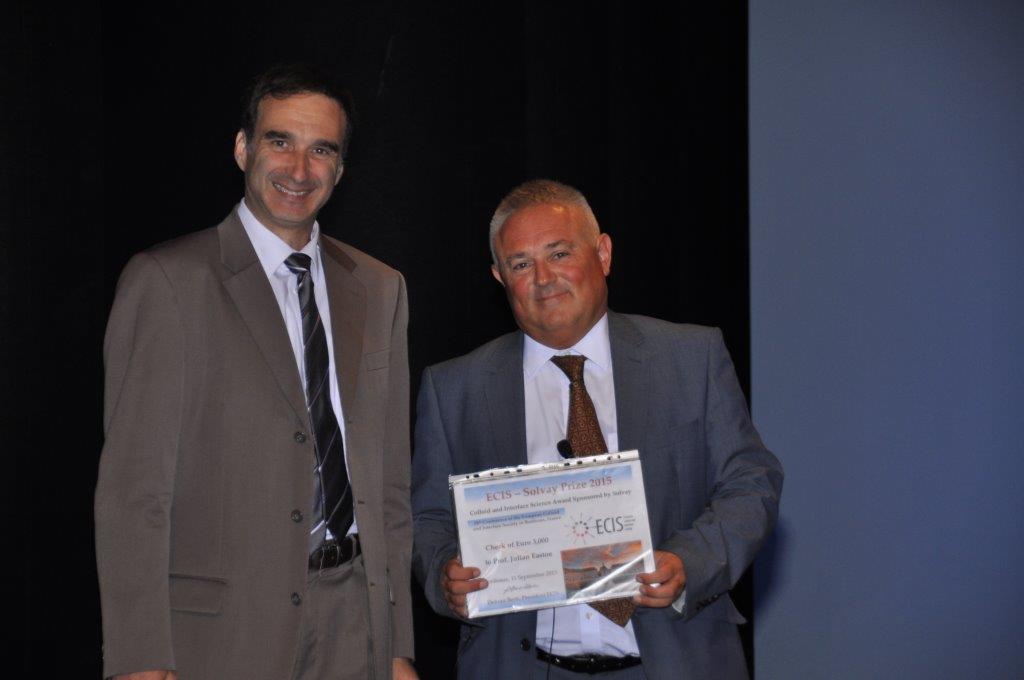
Julian Eastoe is professor of chemistry at the School of Chemistry, University of Bristol, UK. He has a high international reputation in the fields of colloid and interface science, where novel surfactants and polymers have been introduced, and in the applications of neutron scattering.
He is one of the pioneers in stabilizers for dispersions in low density and supercritical fluids like carbon dioxide, alkanes and fluoroalkanes. His group develops new surfactants for various applications, including molecular design, synthesis, NMR and mass spectroscopy. Recently he contributed to the advance in the field with two important developments:The usage of CO2 as a solvent to develop new applications of surfactants, emulsions, co-surfactants and hydrotropes.The formulation of new magnetic surfactants and their application in several research areas spanning from emulsions, graphene, and DNA manipulation, where tunable nanomagnets are important.
A wide variety of techniques were employed to probe interfacial and self-assembly properties, to understand the underlying mechanisms, and to reveal the microstructures involved. For example, his group developed the technique of high-pressure small-angle neutron scattering (HP-SANS) at ISIS Rutherford Appleton Laboratory, which is an invaluable tool for investigating self-assembly systems in CO2.
He was the driving force behind initial characterization of micelles and microemulsions, and unstructured ternary solutions in solution chemistry. The basic understanding brought by their group and documented by 26 international papers goes back to thermodynamics, surface chemistry at colloidal and interfacial scale. Key advances have been made in green chemistry, nanotechnology, surface characterization and functionalization, as well as in fundamental aspects of surfactant science.
